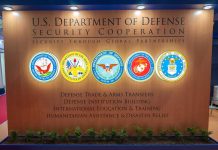
Canadian Prime Minister Justin Trudeau and U.S. President-elect Donald Trump engaged in high-stakes diplomacy at Mar-a-Lago, addressing trade tensions and border security amid tariff threats.
At a Glance
- Trudeau and Trump met at Mar-a-Lago following Trump’s threat of 25% tariffs on Canadian goods
- Discussions covered trade, border security, energy, and the fentanyl crisis
- Trudeau emphasized the importance of constructive dialogue and potential negative impacts of tariffs
- Trump highlighted the U.S. trade deficit with Canada and the need for fair trade deals
- Both leaders pledged to collaborate on addressing shared regional challenges
High-Stakes Diplomacy at Mar-a-Lago
In a critical diplomatic engagement, Canadian Prime Minister Justin Trudeau met with U.S. President-elect Donald Trump at Mar-a-Lago in Florida. The meeting, prompted by Trump’s recent threat to impose a 25% tariff on Canadian and Mexican goods, aimed to address pressing issues between the two nations. Trudeau’s visit, pushed for by Canadian officials, included a dinner with Trump and other key figures, setting the stage for crucial discussions on trade, security, and regional challenges.
The dinner meeting, described as productive by both sides, covered a wide range of topics including trade imbalances, border security, pipelines, defense spending, and the upcoming G7 summit. Trump’s team emphasized discussions on energy, the fentanyl crisis, and the U.S. trade deficit with Canada, which is projected to reach approximately $55 billion in 2024.
Canadian Prime Minister Justin Trudeau met Donald Trump at his Mar-a-Lago residence and discussed border, trade and energy issues amid fears of a trade war https://t.co/Mk23Ys5mCJ pic.twitter.com/qnFN4QCNgt
— Reuters (@Reuters) December 1, 2024
Tariff Tensions and Economic Concerns
At the heart of the discussions was Trump’s proposed 25% tariff on Canadian and Mexican products, ostensibly aimed at addressing drug and migrant flows. Trudeau, facing pressure at home and criticism from opposition leaders, argued that such tariffs would harm both Canadian and American industries. The Canadian Prime Minister emphasized the importance of the North American trade pact and warned of potential price increases for American consumers.
“Ultimately, it is through lots of constructive, real conversations with President Trump that I’m going to have that will keep us moving forward,” Trudeau stated, highlighting his commitment to diplomatic dialogue.
Trump, for his part, took to social media to outline his perspective on the meeting. He emphasized the need to address the fentanyl crisis, illegal immigration, and what he termed “Fair Trade Deals that do not jeopardize American Workers.”
Collaborative Efforts on Security and Trade
Despite the looming threat of tariffs, both leaders expressed a willingness to collaborate on shared challenges. Trudeau agreed to intensify efforts to crack down on drug trafficking, a move that aligns with Trump’s concerns about border security. Canadian officials also signaled readiness to invest in border security measures and engage in constructive dialogue with the incoming Trump administration.
“We’re going to work together to meet some of the concerns,” Trudeau assured, indicating a commitment to addressing Trump’s grievances.
The meeting at Mar-a-Lago, while not resolving all issues, laid the groundwork for future cooperation. As the first G7 leader to visit Trump post-election, Trudeau’s proactive approach underscores the importance of strong Canada-U.S. relations. However, as a senior government official noted, resolving complex trade issues will require more than a single dinner meeting, suggesting ongoing diplomacy will be crucial as Trump takes office in the months ahead.









